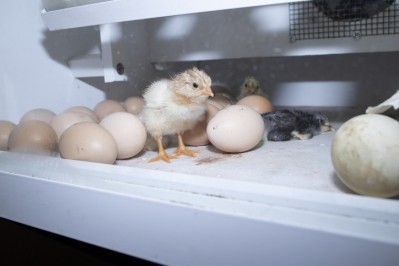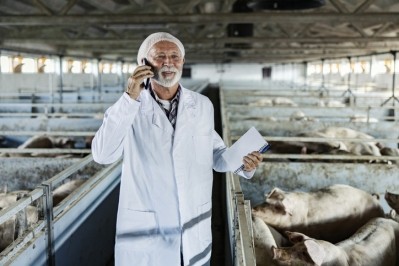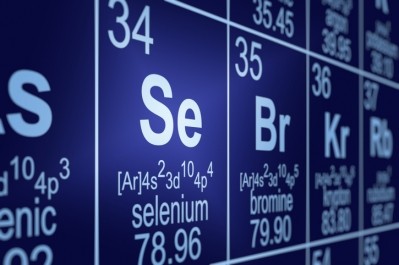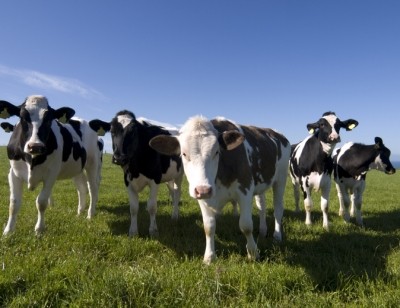Supplemental selenium may boost poultry immune defenses in disease challenge
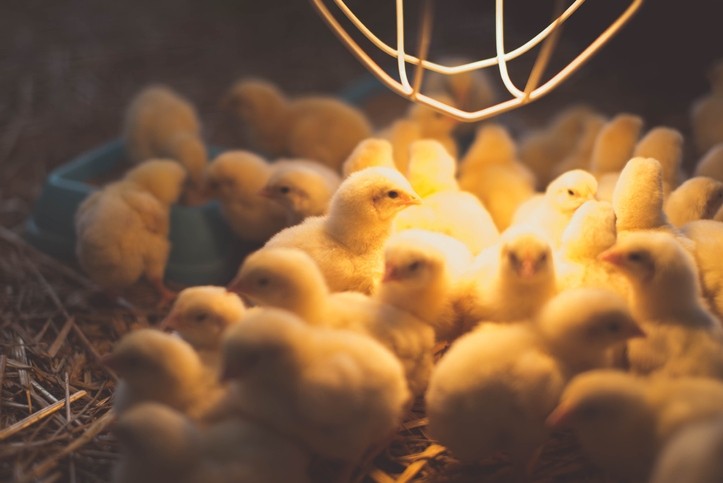
An international team of researchers from Canada and Egypt explored the use of selenium supplementation to boost immunity in poultry facing a disease challenge.
They published their work in the journal, Veterinary Immunology and Immunopathology.
“We evaluated the effect of supplementation of chicken diets with organic (Selenium Enriched Yeast: SEY) and inorganic (Sodium Selenite: SS) selenium on avian influenza virus shedding and expression of antiviral genes in tissues,” the researchers said.
The researchers found that adding supplemental selenium to chicken diets reduced cloacal shedding of the virus compared to birds on a control diet.
Among the supplemented diets, birds receiving an organic selenium additive had lower shedding than those eating feeds with inorganic selenium.
Additionally, birds on the supplemented diets had increased expression of interferon-stimulated genes in the cecal tonsils, the researchers said.
“The results of this study demonstrated that supplementation of chicken diets with selenium, can enhance antiviral defense and thus, may have a beneficial effect in controlling viral infections in poultry,” they added.
Why supplemental selenium?
Several vitamins and minerals have been explored for their potential to improve livestock performance and boost immune responses to diseases and antigens, the researchers said.
Selenium is considered to have a beneficial influence on the immune system.
“Selenium is an important micronutrient and is fed either in organic or inorganic forms in poultry rations, with organic selenium known to be more bioavailable,” they added.
Previous research has linked the use of supplemental selenium to improved performance and antioxidant response in broilers facing heat stress and that adding the nutrient to broiler breeder diets can improve egg production and hatchability, they said.
“Immune enhancing activities of selenium are largely attributed to its role as an antioxidant,” the researchers said. “Selenium essentially regulates the function of glutathione peroxidase (GPx), an enzyme with antioxidant activity that neutralizes Reactive Oxygen Species (ROS), to reduce oxidative stress and protect the integrity of cells, including cells of the immune system.”
Supplemental selenium use also has been linked to changes in T helper (Th1/Th2) responses in the face of viral or bacterial infections, they said.
“Feed supplementation with selenium has also been shown to regulate the inflammation process, which underscores the important role of selenium in resolving infection via avoiding unwanted excessive pathology,” they added.
A major challenge faced by members of the poultry industry is avian influenza (AI), they said. Little has been found effective to stop or control AI outbreaks, despite the high costs of the disease.
Vaccines have been developed for the virus, however, it continues to “shift and drift,” meaning that alternative methods to address the disease are needed, they said.
“These strategies may include supplementation of feed with nutrients with immunostimulatory effects in order to enhance innate immune defenses against the virus as well as augmenting vaccine-induced protective immune responses,” they added.
“Selenium has been used experimentally and commercially as a feed supplement and has been shown to improve bird health and performance,” they said. “However, the antiviral activity of selenium is not well studied.”
Feeding trials
In the first of two feeding trials, 60 chickens received one of six diets, the researchers said.
The diets included negative and positive non-supplemented controls, a diet with a low dose 0.15mg/kg of feed of organic selenium (SEY-L), a high dose 0.30mg/kg of feed organic selenium (SEY-H), a low dose 0.15mg/kg of feed inorganic selenium (SS-L), or a high dose 0.30mg/kg inorganic selenium (SS-H), they said.
All birds, except those on the negative control diet, were challenged with the low pathogenicity H9N2 strain of the AI virus.
The second feeding trial looked at the influence of supplemental selenium on antiviral gene expression, the researchers said. In the trial, 150 chickens were given one of the previously established diets and challenged with a strain of AI on day 14 – except for birds on the negative control diet.
On days 3, 5 and 7 following the disease challenge oropharyngeal and cloacal swabs were collected from all birds, they said. The viral shedding from both sets of swabs was assessed.
A selection of birds also was collected on days 0, 3, 5 and 7 post-infection and tissue samples were gathered from the cecal tonsils and spleens, they said.
Results
Controlling AI includes preventing the disease and limiting virus shedding the researcher said. AI replicates in the mucosa and, when shed through feces or into the air, can infect other birds in the flock or in neighboring flocks.
“We found that selenium supplementation resulted in reduced virus shedding and enhanced expression of ISG and IFN genes,” they said.
In the first feeding trial, it was found that birds receiving a diet with supplemental selenium had lower virus shedding, they said. Chickens receiving the SEY-H diet also has lower virus titers in samples taken from the cloaca at all times when compared to challenged, control group birds.
“In addition, the oropharyngeal shedding of virus in SEY-H chickens was significantly lower at 5 dpi (days post infection) when compared to chickens that received SS-L/ SS-H supplemented feed or no treatment but only the virus challenge,” they said. “Cloacal virus shedding at 7 dpi in all selenium treated groups was significantly lower when compared to the virus challenged control group; however, there was no significant difference among the supplemented groups.”
“Supplementation of chicken feed with the organic form of selenium (SEY) was more effective at reducing virus shedding compared to the inorganic selenium (SS) supplemented diet.
“This may be due to the fact that SEY is more bioavailable than SS and that it may also have a more potent immunostimulatory activity in terms of augmenting the functions of the immune system cells through reducing the cellular oxidation status.”
In the second feeding trial, no changes were found in the expression of viperin, OAS or MDA5 genes following the disease challenge, the researchers said. In the spleen, no changes were noted.
The production of interferons and the induction of ISGs is part of the antiviral defense mechanism, they said.
“In regard to the expression of interferon genes, there was a significantly higher transcription of IFN-α in the cecal tonsils of chickens receiving SEY-L supplemented feed at 5 dpi compared to those fed with SS-H supplemented diet,” they said. “Furthermore, IFN-α gene expression in the cecal tonsils of these birds remained significantly higher at 7 dpi when compared to groups that received either SS-L supplemented feed or virus-alone challenge.”
There were no changes found for the expression of IFN-a in the cecal tonsils or in the spleen, they said. However, the expression of IFN-β in the tonsils of chickens receiving the SS-H diet was higher at day 3 pdi than those on the SS-L diet or the challenged control group birds.
No differences were noted for the gene’s expression at later points in the cecal tonsils or at any point in the spleen, they said.
Changes also were noted for IFN-y expression, but only in the spleen, the researchers said. “Chickens fed with SEY-L had significantly elevated splenic IFN-γ transcription when compared to virus only challenged controls,” they added.
“Our results demonstrate that selenium supplementation of chicken diets increases the expression of antiviral response genes which could lead to reduction of virus shedding from infected birds,” they added.
Source: Veterinary Immunology and Immunopathology
Title: Dietary selenium supplementation enhances antiviral immunity in chickens challenged with low pathogenic avian influenza virus subtype H9N2
Authors: B. Shojadoost, R. Kulkarni, A. Yitbarek, A. Laursen, K. Taha-Abdelaziz, T. Alkie, N. Barjesteh, W. Quinteiro-Filho, T. Smith, S. Sharif
DOI: https://doi.org/10.1016/j.vetimm.2018.12.002
